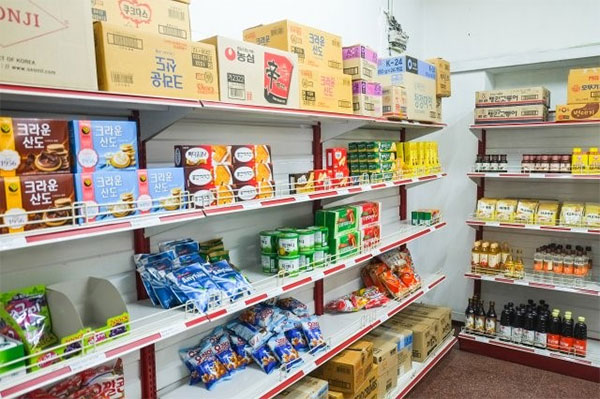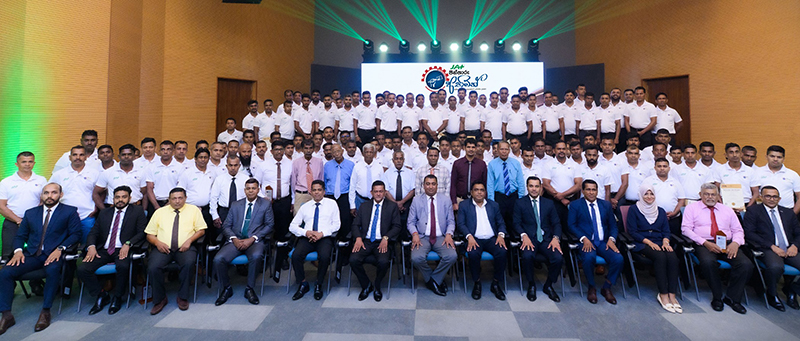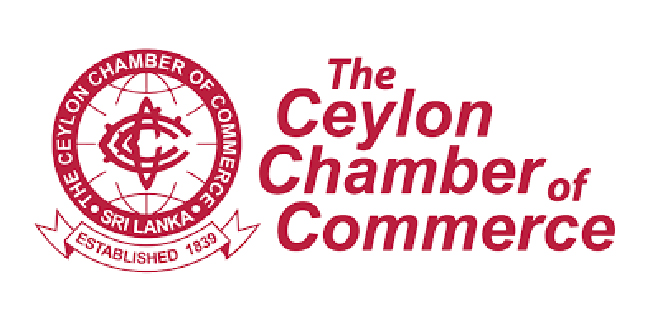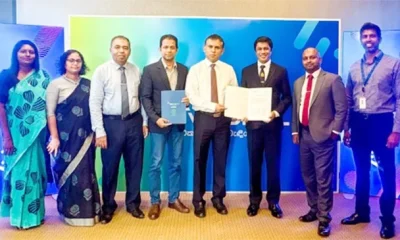Business
IPS Proposals for the Interim Budget

Ahead of the presentation of the Interim Budget, the Institute of Policy Studies of Sri Lanka (IPS) has recommended policy proposals for inclusion in the forthcoming Budget. Some key policy issues and recommendations follow.
Trade Policy
Despite strict import controls, Sri Lanka’s trade deficit in merchandise goods widened in 2021. The slight increase was mainly due to the sharp price movements in the world market, with the import reduction patterns across categories being consistent with the post-pandemic controls. As consumer goods imports are prioritised, including food imports, it generates two key undesirable impacts. First, it impacts food security and nutrition needs. Second, high food prices will incentivise a further resource shift – such as labour – to agriculture, raise wage costs for sectors like manufacturing and impact their competitiveness. In this context, two key recommendations are:
Prioritise imports for industrial expansion and food security needs: IPS research shows that about 88% of food imports are now subject to quantitative or price restrictions. The Special Commodity Levy (SCL) on items such as canned fish, green/black gram, cowpea, palm oil, and black gram flour should be removed to ensure that food security and caloric needs are met. Licensing restriction on maize imports which feeds poultry production costs must also be revisited. Sri Lanka must prioritise fertiliser imports and reintroduce fertiliser subsidies to paddy and vegetable farmers to raise productivity and prevent a resource shift that will impact overall economic efficiency.
Focus on increasing exports in sectors that use minimum foreign raw materials: There are certain products in which Sri Lanka enjoys a comparative advantage in global markets, requiring low imported raw materials in production such as tea, spices and mineral products like graphite. To meet immediate needs, bottlenecks such as fertiliser shortages should be addressed to raise productivity and export earnings whilst mineral resources can be auctioned to increase revenues.
Education Policy
The COVID-19 pandemic and the current economic crisis have severely affected the education sector. Health concerns, union action, social unrest and transport issues have resulted in frequent school closures. Inadequate budget allocations and improper recruitment of teachers have deteriorated the quality of education. Recent news items have highlighted difficulties faced by schools due to shortages of paper and other materials necessary for the functioning of schools. Further, deterioration of school facilities has affected the effective functioning of schools. Interruptions to school-based relief measures such as the school meal programmes can also increase school dropouts and malnutrition. Data from the Ministry of Finance reveals that public investment in education has remained just above 1%. Of this minuscule allocation, a large share is spent on teacher salaries. Frequent absorptions to the teaching cadre to provide jobs to unemployed graduates has worsened this situation crowding out funds from other necessary education inputs.
The government has recommended online lessons as a solution to difficulties in conducting on-site school classes. But IPS research shows that the access to online lessons is not equitable due to poor access to the internet, lack of necessary devices and high cost of data. In this context, two key recommendations are:
Increase public investment in education: Public investment in education should be increased and an adequate share of such investments should be dedicated to increasing the quality of education delivery such as the maintenance of school facilities, paper, and maintenance of school-centred relief programmes (e.g. school meals). This can be done by putting a cap on the share of government spending on salaries and wages of total expenditure in education. Given the lower enrolment rates for A-Levels, the government should consider introducing targeted financial assistance programmes for deserving children from poorer families to continue their studies.
Minimise school closures due to transport issues: Increase the existing fleet of school buses and provide adequate fuel for school buses to limit school closures due to transport issues. Measures should also be taken to ensure that children do not travel long distances to attend schools so that schools can function uninterrupted even in times of crisis.
Food Security and Nutrition Policy
IPS research shows that long-term environmental, social, and economic trends heightened by domestic and international challenges have eroded the resilience of Sri Lanka’s agri-food systems. On the global front, the COVID-19 pandemic and the Russia-Ukraine conflict are generating a global recession with high world market prices of food, oil, and fertiliser. At the local level, crop failures have resulted from poor government policies such as the chemical fertiliser import ban. Inflationary pressures arising from a combination of factors including excessive money printing and the sudden free float of the exchange rate have also taken a toll on domestic food prices and food supply. All these have resulted in low farm incomes, high food prices, food shortages and hunger and malnutrition. In this context, two key recommendations are:
Introduce a targeted food ration scheme for the poor and strengthen nutritional assistance: As an immediate measure to help the poor and marginalised who are the most vulnerable, introduce a targeted food ration scheme covering essentials like rice, wheat flour and dhal. Strengthen nutritional assistance programmes such as the School Meals programme, ‘Thriposha’ and ‘Poshana Malla’. Support from the World Food Programme (WFP), Food and Agriculture Organization (FAO) and regional (SAARC) and bilateral sources can be sought for this purpose.
Promote community gardens in the short term: Promote community gardens that include neighbourhood community gardens and school gardens. The way a community garden is set up and maintained can vary greatly from one to the other. These can be established in an empty land and the neighbours can look after it. It can be even in private land where the neighbours can share the harvest in exchange for labour. Some examples of community gardens include Virginia Avenue Community Garden, Washington, D.C., and Community Gardens Australia.
Health Policy
Sri Lanka’s health system is recognised as an efficient, low-cost model. However, changing demographic and disease patterns along with domestic finance issues threaten the sustainability of the health sector. Inadequate service provision in the public sector and shortages of medicine and equipment are driving people towards the private sector causing inequities in access to healthcare, as not all can afford private sector healthcare. Over half of the existing budget is allocated for wages leaving very little resources for all other health inputs. As a result, investments in this vital sector have been curtailed over the past few years. Further, changing lifestyles have exacerbated the risk factors for non-communicable diseases (NCDs). Four major behavioural risk factors directly contribute to the escalating NCDs in the country: tobacco use, physical inactivity, alcohol misuse, and unhealthy dietary patterns. In this context, two key recommendations are:
(To be continued)
Business
JAT Holdings celebrates the 6th Pintharu Abhiman Convocation, uplifting over 800 painters through NVQ certification

JAT Holdings PLC marked a significant milestone with the successful conclusion of the 6th JAT Pintharu Abhiman Convocation, recognising more than 800 painters who have earned their NVQ Level 3 qualification, an internationally recognised professional certification delivered in partnership with the National Apprentice and Industrial Training Authority (NAITA).
JAT Pintharu Abhiman was established to uplift Sri Lanka’s painter community through structured skills development, professional recognition and stronger earning potential. This year’s graduating cohort reflects the programme’s expanding reach and the tangible changes it continues to deliver for individuals, families and communities.JAT in collaboration with NAITA has streamlined the certification process such that what would traditionally take up to six months has been refined into an efficient and high-impact three-day assessment model. This approach ensures painters can obtain their qualification without sacrificing extended periods of work, while JAT fully absorbs the certification cost, removing financial barriers and enabling wider access to formal recognition.
Research conducted amongst NVQ qualified participants shows meaningful improvements in livelihoods, with 90 percent reporting increased personal confidence and 76 percent noting an improvement in their overall standard of living. This uplift demonstrates the long-term value of industry-aligned professional training.
A noteworthy moment at this year’s convocation was the recognition of four female painters who received their NVQ certifications. Their achievement marks an important step in broadening female participation in a field that has historically been male dominated, reinforcing JAT Holdings’ commitment to creating inclusive pathways for technical development and sustainable employment.
Speaking at the ceremony, Mr. Wasantha Gunaratne, Director Sales and Technical (South Asia) of JAT Holdings PLC, said:
“Pintharu Abhiman is fundamentally about development, giving painters the knowledge, structure and recognition they need to progress in their careers. By equipping over 800 painters with an internationally recognised NVQ qualification, we are not only strengthening the technical standards of the industry but also creating real pathways for entrepreneurship and financial independence. It is especially encouraging to see that one in five certified painters have already begun building their own businesses. These are the outcomes that matter because they show that when we invest in skills, we unlock opportunity. JAT remains committed to expanding these avenues so every painter has the chance to grow, lead and build a sustainable future.”
The 6th JAT Pintharu Abhiman Convocation underscores JAT’s continued dedication to uplifting the painter community, enhancing industry standards and supporting national skills development through accessible, professionally recognised qualifications.
Business
Industry bodies flag gaps in Draft National Electricity Policy

The Ceylon Chamber of Commerce, together with the American Chamber of Commerce, Exporters Association of Sri Lanka, Federation of Renewable Energy Developers, Joint Apparel Association Forum, National Chamber of Commerce of Sri Lanka and Sri Lanka Association for Software and Services Companies, has submitted joint observations on the Draft National Electricity Policy, highlighting that several key issues have not been adequately addressed.
Whilst recognizing the need for reform in the electricity sector, the submission flags several gaps in the draft policy that require closer attention. Key areas such as affordability, decarbonisation commitments, incentives for renewable energy, competition, and the long-term financial health of the sector are either missing or not addressed in sufficient depth.
The proposed tariff revisions outlined in the draft energy policy raise concerns, particularly regarding the removal of cross-subsidies and the proposal to restrict subsidies exclusively to households consuming less than 30 kWh per month. Without detailed analysis, these measures could weaken access to sustainable and affordable energy and potentially lead to fiscal risks.
The provisions allowing uncompensated curtailment, removing feed-in tariffs, and imposing mandatory time-of-use tariffs on rooftop solar users could make renewable energy projects un-bankable for international lenders, thereby increasing the cost of capital for Sri Lanka.
Calling for a more future-focused approach, the submission stresses the need for a policy that reflects modern electricity systems, including planning for the energy transition, energy storage, market competition, cross-border electricity trading, and emerging technologies.
The Chambers and Associations request a comprehensive revision of the Draft National Electricity Policy, alignment with the Electricity Act, and resubmission following substantive consultation, and reiterate support to engage constructively with policymakers to shape a policy that supports affordability, investment confidence, and Sri Lanka’s long-term energy security.
Business
Bank of Ceylon partners with 36th APB Sri Lanka Convention

Bank of Ceylon (BOC) partnered with the 36th Annual Convention of the Association of Professional Bankers (APB) Sri Lanka, reaffirming its commitment to promoting professional excellence and knowledge sharing within the banking sector. The partnership was officially handed over by Sameera D. Liyanage, Chief Marketing Officer of Bank of Ceylon and M. R. N. Rohana Kumara, Deputy General Manager Business Revival Unit of Bank of Ceylon, reflecting BOC’s focus on empowering banking professionals and supporting the sustainable growth of Sri Lanka’s financial services industry.
-

 Business1 day ago
Business1 day agoKoaloo.Fi and Stredge forge strategic partnership to offer businesses sustainable supply chain solutions
-

 Business5 days ago
Business5 days agoDialog and UnionPay International Join Forces to Elevate Sri Lanka’s Digital Payment Landscape
-

 News5 days ago
News5 days agoSajith: Ashoka Chakra replaces Dharmachakra in Buddhism textbook
-

 Features5 days ago
Features5 days agoThe Paradox of Trump Power: Contested Authoritarian at Home, Uncontested Bully Abroad
-

 Features5 days ago
Features5 days agoSubject:Whatever happened to (my) three million dollars?
-

 Business1 day ago
Business1 day agoSLT MOBITEL and Fintelex empower farmers with the launch of Yaya Agro App
-

 Business1 day ago
Business1 day agoHayleys Mobility unveils Premium Delivery Centre
-

 News5 days ago
News5 days agoLevel I landslide early warnings issued to the Districts of Badulla, Kandy, Matale and Nuwara-Eliya extended













